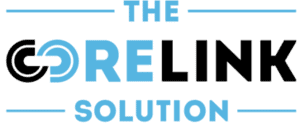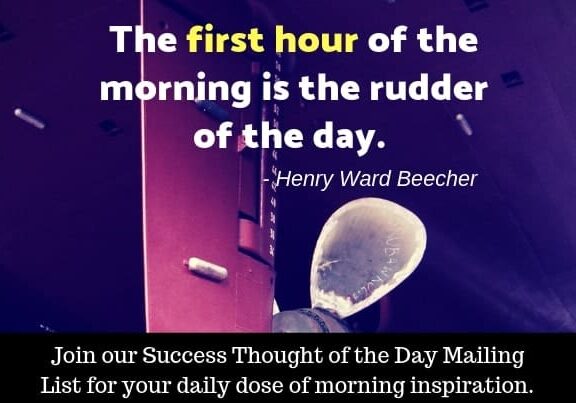6 Steps To Get A Job After College (Even Without Experience!)
Transition can be scary, especially when figuring out how to get a job after college. The shift from student life to the workforce can feel overwhelming, with the pressure to secure a stable position, build a career, and manage financial responsibilities. Today’s job market is dynamic, constantly evolving with new trends and expectations, making it difficult to know where to start or how to present yourself to future employers. Every graduate has faced this challenge.
Beyond earning a degree, landing that first job requires strategy, preparation, and adaptability. Employers are increasingly prioritizing skills, hands-on experience, and professionalism. You’ll need to consider various factors—finding work in your field, optimizing your resume and cover letter, networking effectively, and managing time for other obligations.
This article will explore essential strategies to help you stand out, understand what employers are looking for, and how effectively marketing yourself can make all the difference.
Start At College!
As you begin navigating the job market, don’t overlook the wealth of resources your college offers—even after graduation. Most schools have career centers or advisors dedicated to helping students and alums make informed career decisions. From connecting you with job openings and industry professionals to offering invaluable services like resume reviews and interview preparation, these resources can provide crucial support at every stage of your job search. Tapping into these opportunities not only boosts your confidence but also positions you for success by leveraging the expertise and networks of your institution.
Keep in mind that this is your first networking opportunity. You will get references, advice, information, and guidance from various sources at your school from teachers, advisors, and peers. This is the perfect opportunity to break the ice and prepare you for outside networking and selling yourself in the job market, as the fear of reaching out and seeking the resources you need will diminish. Your confidence will rise because you know which way to go and how to do things.
The Value of Hands-on Experience
A college degree alone isn’t always enough to secure a job in today’s market. Employers increasingly prioritize candidates with real-world experience over those with just academic credentials. 75% of companies report that some or all recent college graduates hired this year were unsatisfactory (Intelligent.com). Additionally, 9 in 10 hiring managers believe graduates should undergo professional etiquette training to better prepare for the workforce.
This shift means that recent graduates who engage in internships, part-time jobs, freelance work, or volunteer projects have a better chance of landing a role. But if traditional internships aren’t accessible, there are other ways to gain experience:
- Industry-related projects – Contribute to open-source projects (for tech), showcase work on Behance (for design), or publish articles on Medium (for writing).
- Student organizations – Gain leadership, event planning, or project management experience through clubs and professional groups.
- Short-term contract work – Platforms like Upwork, Fiverr, or PeoplePerHour allow graduates to build a portfolio while earning money.
By proactively developing real-world skills, job seekers can bridge the experience gap and better align themselves with employer expectations.

Is it Hard to Get a Job After College?
For many graduates, landing a job after college is more challenging than expected. While a degree opens doors, it doesn’t guarantee employment—especially without relevant experience.
According to the Federal Reserve Bank of New York, the unemployment rate for recent grads was 5.8%, up from 4.6% last year. However, this doesn’t mean all graduates secured full-time roles in their field. Many end up in temporary or unrelated jobs or face long hiring processes before landing a stable opportunity.
One key challenge is the experience gap—employers seek candidates who can demonstrate practical abilities, yet many graduates enter the job market with only academic knowledge. Additionally, networking plays a crucial role in job placement, as studies show that many jobs are filled through connections rather than online applications.
To improve their chances, graduates should focus on building experience, refining their application materials, and expanding their professional networks well before they enter the job market.
Job Search Steps for College Graduates
To improve your chances of landing a job, follow these key steps to build experience, present yourself professionally, and make meaningful connections:
- Build Experience and Skills
- Gain hands-on experience through freelance projects, apprenticeships, or volunteer work to showcase measurable results on your resume.
- Stay updated with industry trends by attending workshops, online courses, or obtaining certifications.
- Find a mentor to provide career guidance, feedback, and networking opportunities.
- Prepare Professional Materials
- Tailor your resume and cover letter for each job application, incorporating relevant keywords and emphasizing applicable experience.
- Optimize your LinkedIn profile, networking accounts, and optional personal portfolio to create a professional online presence.
- Network Strategically
- Expand your connections by attending industry events, joining professional organizations, and contacting professors.
- Conduct informational interviews with professionals in your field to gain valuable insights and career advice.
- Focus Your Job Search
- Start early—research companies and industries 6-12 months before graduation to identify target employers.
- Use targeted strategies by identifying 15-20 companies and aligning applications with their hiring needs.
- Ace the Hiring Process
- Perfect your “Tell me about yourself” pitch to make a strong first impression.
- Follow up professionally after interviews to express interest and reiterate key qualifications.
- Consider offers carefully and negotiate salary or benefits when appropriate.
- Set Yourself Up for Success
- Transition smoothly into your new role by seeking feedback, staying proactive, and making a strong first impression.
These steps will prepare you to stand out in a competitive market and confidently navigate the hiring process.

Resume Tips
A resume and cover letter are indispensable tools in the job search, acting as your first introduction to prospective employers. Your resume is a snapshot of your skills, experiences, and achievements, providing a concise and compelling overview demonstrating your suitability for the role. A tailored cover letter complements this by offering a personal narrative, highlighting your passion for the position and how your background aligns with the company’s needs. Together, these documents establish your professionalism, attention to detail, and communication skills—highly valued by employers. In a competitive job market, a well-crafted resume and cover letter help you stand out and increase your chances of advancing to the interview stage, turning a potential opportunity into a tangible career milestone.
Here are some tips to help you tailor your resume for your job search:
- Tailor your resume for each job – Incorporate relevant keywords and highlight experiences that align with the job description.
- Keep it concise and relevant – Limit your resume to one or two pages, focusing on education, technical skills, and applicable roles.
- Highlight quantifiable achievements – Instead of general statements, use metrics to show impact (e.g., “Increased social media engagement by 25%”).
- Emphasize transferable skills – If you lack formal job experience, highlight academic projects, extracurricular leadership, or volunteer work.
- Leverage AI tools – Use Grammarly, ChatGPT, or resume builders to refine wording and improve formatting.
Cover Letter Tips
- Personalize your introduction – Address the hiring manager by name and mention the company to show research.
- Tell your story – Explain your passion for the industry and why you’re a strong fit for the company.
- Highlight one key achievement – Focus on a standout accomplishment that showcases relevant skills.
- Use a professional yet engaging tone – Strike a balance between formal and personable writing.
- End with confidence – Express enthusiasm for the role and the opportunity to contribute to the company.
The Power of Soft Skills
While technical qualifications and accomplishments often take center stage on a resume, soft skills are equally vital in making a strong impression on employers. Traits like effective communication, problem-solving, and collaboration demonstrate your ability to thrive professionally. These skills can’t always be quantified but often leave the most significant impact, showcasing your readiness to work with others and adapt to challenges. Highlighting soft skills—either briefly in your resume or as part of your pitch during an interview—can elevate your candidacy and make you stand out as a well-rounded professional.
Turn This Challenge Into An Opportunity
With the proper preparation and approach, navigating the job market after college can feel less daunting. While the process may come with challenges, focusing on hands-on experience, a strong resume and cover letter, strategic networking, and job search persistence will significantly increase your chances of success.
Securing a job isn’t just about having a degree—it’s about demonstrating value, adaptability, and a commitment to growth. Employers seek candidates who can showcase problem-solving abilities, communication skills, and a willingness to learn.
Job hunting requires patience and resilience. Not every application will result in an offer, but each step forward brings you closer to your goals. Remember, you’re not alone—stay resilient, keep learning, and trust that your efforts will pay off.
You can launch a fulfilling career and continue growing professionally with determination and the right strategies. With the right mindset and preparation, you can turn this challenge into an opportunity for growth and success.




